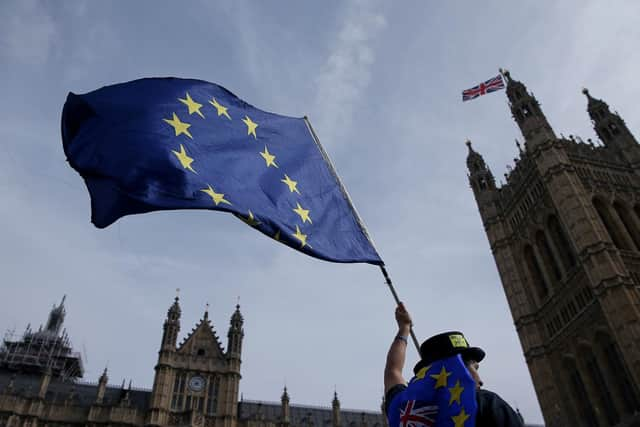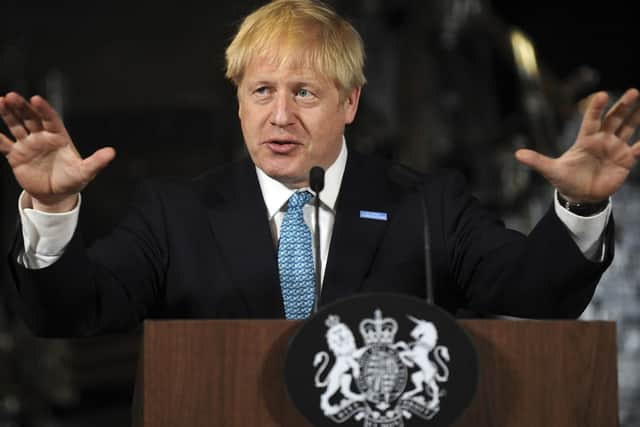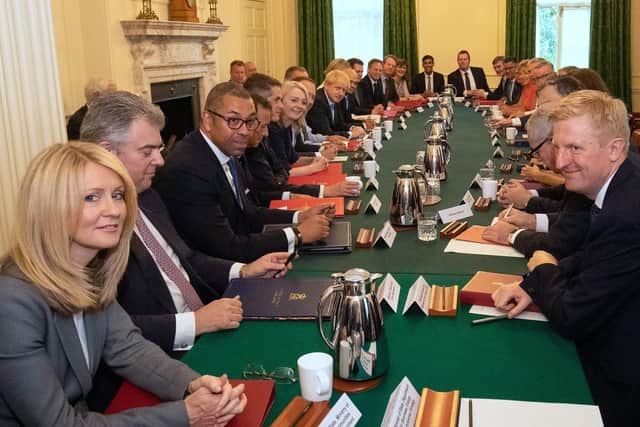Yorkshire logisitcs boss says Government's freeport plan 'unlikely to mitigate against Brexit'




Adam Johnson, director of Leeds-based Tudor International Freight, said the region’s businesses should view the government’s rhetoric about its proposal to introduce freeports after Brexit with some scepticism for now.
The government has created a Freeports Advisory Panel, including ministers from the Treasury and Department for International Trade, with a view to launching up to 10 freeports across the country, following Britain’s departure from the EU, scheduled to happen by October 31. However Mr Johnson believes their creation would bring little economic benefit to the country.
Advertisement
Hide AdAdvertisement
Hide AdHe said: “Freeports, which can include airports as well as shipping destinations, are designated areas within a country with special economic status.
"Traders don’t have to pay tariffs and must supply only reduced documentation for goods entering these zones from abroad. Businesses retain these advantages if they sell, store or process such imports - by using them as components and then re-exporting them, for example - without them entering the wider country.


"The latter would mean obligations such as duty payments perhaps being deferred, but not avoided.”
Benefits
Mr Johnson said international trade secretary Liz Truss had claimed the envisaged freeports would transform towns and cities across the UK, onshoring enterprise and manufacturing and creating thousands of jobs.
Advertisement
Hide AdAdvertisement
Hide AdHe said: “Introducing 10 freeports is unlikely to go anywhere near mitigating the economic downsides of a no-deal Brexit or even the UK leaving the EU customs union alone. These results could include bankruptcies and job losses.


“Another reason for slight scepticism among Yorkshire businesses is the government announced in March there would be no tariffs on 87 per cent of our imports for up to a year, if - as seems increasingly likely - we leave the EU without a deal. Freeports would therefore apparently bring few additional benefits to UK businesses, at least initially, other than reduced form-filling and perhaps a slightly lighter regulatory regime than would apply elsewhere in the country.”
Evidence
Mr Johnson said there were about 3,500 freeports in around 135 countries worldwide but evidence of the benefits they delivered also seemed patchy.
He said: “The UK Trade Policy Observatory, run by Sussex University and the Chatham House think tank, probably Britain’s principal trade experts, for example, has said freeports’ effectiveness depends significantly on local factors.


Advertisement
Hide AdAdvertisement
Hide Ad"In addition, there are always the possibilities that freeports will fail to increase overall economic activity, deplete commercial life in other locations and cause government tax revenues to drop. That’s because they act as magnets for the transfer of existing business operations from elsewhere.”
He added that the absence of freeports in the UK was not down to the country’s EU membership, pointing to the existence of 80 similar areas in the bloc.
“We lack them here partly because the domestic legislation making them possible lapsed in 2012 and the Conservative-led coalition government of the time didn’t renew it.”
Freeports explained
Freeports can be airports as well as martime ports and are zones where normal taxation and customs rules are not in effecty.
Advertisement
Hide AdAdvertisement
Hide AdA freeport is designed to encourage businesses that import, process and then re-export goods.
Imports can enter with simplified customs documentation and without having to pay tariffs. Businesses operating inside these designated areas in and around the port are able to manufacture goods using the imports and add value, before exporting again without ever facing the full tariffs or procedures.
If the goods move out of the freeport into another part of the country, however, they have to go through the full import process, including paying any tariffs.